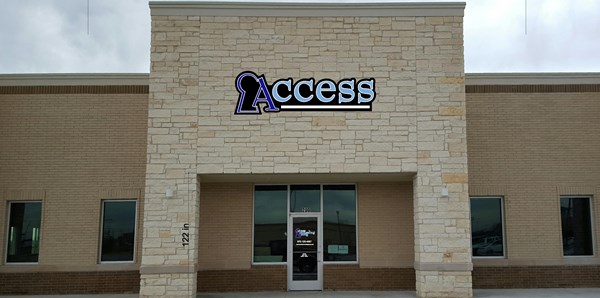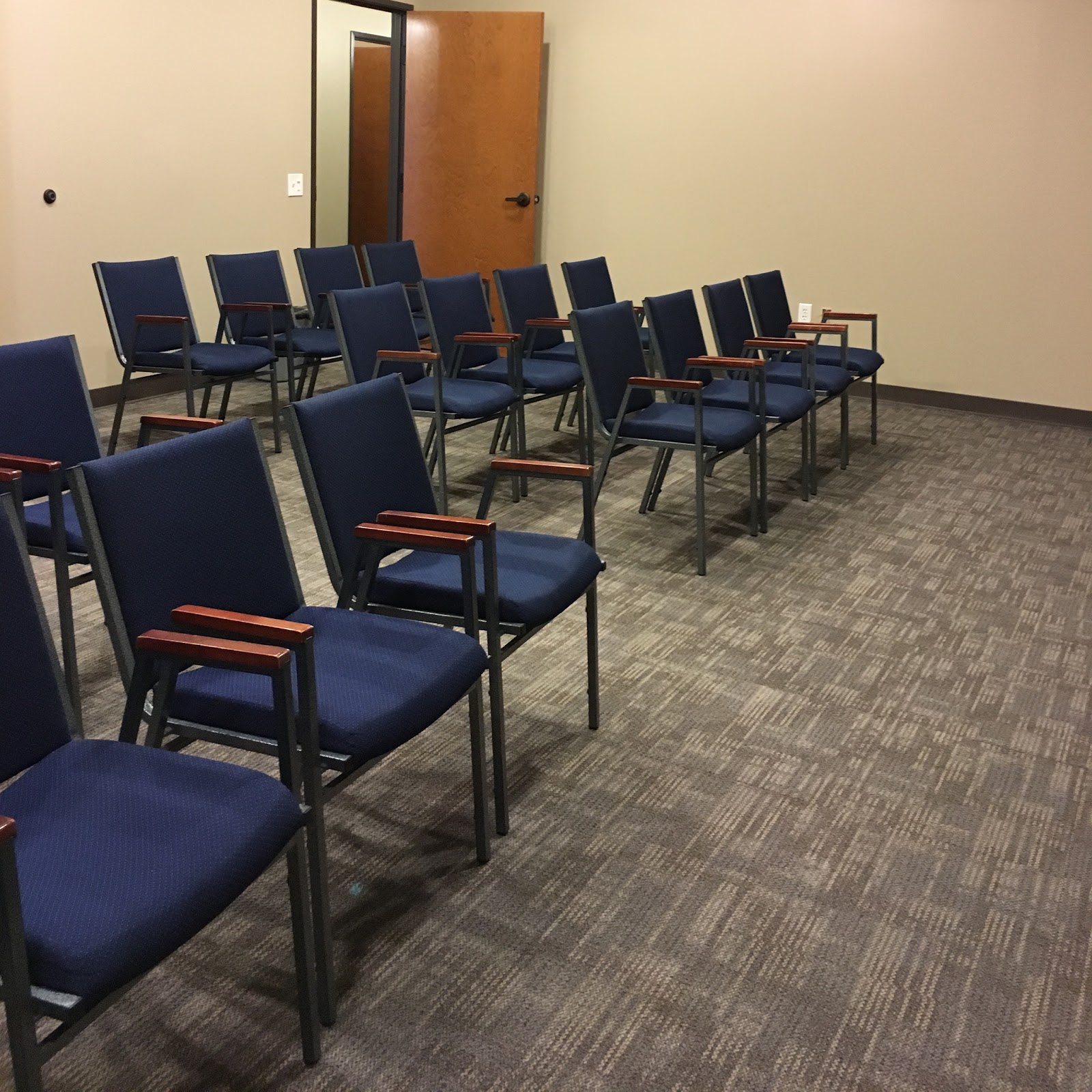Overview
Access Counseling Group is a substance abuse treatment center for people seeking treatment near Denton County. As part of their treatment modalities for recovery, Access Counseling Group provides individual psychotherapy, family counseling, and group counseling during treatment. Access Counseling Group is located in Frisco, Texas, accepting cash or self-payment for treatment.
Access Counseling Group at a Glance
Payment Options
- Cash or self-payment
- Private health insurance
- Per session
- Aetna
- Blue Cross and Blue Shield Association
Assessments
- Comprehensive mental health assessment
- Comprehensive substance use assessment
Age Groups
- Young adults
- Adults
Operation
- State government
Accreditations
The Joint Commission:

The Joint Commission, previously known as JCAHO, is a nonprofit organization that accredits rehabilitation organizations and programs. Established in 1951, its mission is to enhance the quality of patient care and showcase excellence in healthcare delivery.
Treatment At Access Counseling Group

Conditions Treated
Mental health treatment:
Mental health treatment provides a safe and structured environment where individuals can receive professional care and support for their mental health challenges. Within the facility, trained therapists, counselors, and medical staff work together to create personalized treatment plans tailored to each person's needs. Patients might participate in a variety of therapies, including individual counseling, group therapy, and possibly medication management. The goal is to equip individuals with the tools and strategies they need to cope with their conditions and lead fulfilling lives.
Alcoholism:
Alcohol addiction is when a person becomes physically and mentally dependent on alcohol, leading to mood swings, impulsive actions, intense cravings, and withdrawal symptoms. Treatment includes supervised detox, therapy, and support groups. It's important to note that rehabilitation doesn't "cure" alcoholism, but it helps individuals better manage their addiction, regain their ability to function in daily life, and improve their overall well-being.
Opioid Addiction:
Opioid rehabs specialize in supporting those recovering from opioid addiction. They treat those suffering from addiction to illegal opioids like heroin, as well as prescription drugs like oxycodone. These centers typically combine both physical as well as mental and emotional support to help stop addiction. Physical support often includes medical detox and subsequent medical support (including medication), and mental support includes in-depth therapy to address the underlying causes of addiction.
Substance use treatment:
Substance abuse treatment programs can help to address addiction and, if relevant, any co-occurring mental health conditions. Programs include outpatient, inpatient, dual-diagnosis, and partial hospitalization. The addict will receive therapies like cognitive behavioral therapy, or dialectical behavioral therapy, and sometimes complementary therapies like acupuncture and mindfulness-based therapy. By attending skills training and recovery groups you’ll build a strong foundation for your recovery and strengthen your support network, increasing your chances of long-term recovery success.
Co-occurring Disorders:
Dual-diagnosis rehabilitation centers specialize in the treatment of individuals who suffer from a co-occurring mental health disorder and a substance use disorder. This complex interplay between addiction and mental health can make recovery more challenging, as each condition may exacerbate the symptoms of the other. Dual-diagnosis rehabilitation centers offer an integrated approach that addresses both issues simultaneously and often includes a comprehensive assessment for an Integrated Treatment Approach through Holistic Therapies, including family therapy and aftercare treatment.

Levels Of Care
Intensive outpatient treatment:
Intensive Outpatient (IOP) is a form of structured therapy designed to support individuals in recovery from addiction, mental health disorders, or other medical conditions. Unlike inpatient or residential treatment, where patients live at the facility, IOP allows individuals to receive high-level care while still living at home and maintaining specific day-to-day responsibilities. Typically, patients in IOP programs attend sessions multiple times per week, often totaling 9-20 hours or more. These sessions can include individual therapy, group therapy, family counseling, and educational classes focused on skills and strategies for managing symptoms and preventing relapse.
Detoxification:
Detoxification (detox) is the process of clearing the body of drugs or alcohol that an individual has consumed. The purpose of detox is to safely manage withdrawal symptoms when someone stops taking drugs or alcohol. It denotes a clearing of toxins from the body of the patient who is acutely intoxicated and/or dependent on substances of abuse. Detoxification seeks to minimize the physical harm caused by the abuse of substances.
Aftercare:
Finishing a drug or alcohol rehab program is just the beginning of the recovery journey. Aftercare focuses on establishing a long-term recovery plan, which encompasses continuous support. This might involve options such as residing in sober living homes or halfway houses, receiving career guidance, and connecting the individual with community support groups like Alcoholics Anonymous (AA) or Narcotics Anonymous (NA).
Outpatient:
Outpatient programs cater to individuals who are in good medical condition and are not at a heightened risk of relapse, including those who have successfully finished their inpatient treatment. These programs usually build upon clients' existing treatment strategies, providing ongoing addiction counseling and educational support for recovery. Individuals who enter outpatient care right after detoxification may also undergo medical and psychological evaluations, followed by the creation of personalized treatment plans. Most outpatient rehabilitation centers offer various levels of care tailored to meet each client's specific needs.

Treatment Modalities
Individual psychotherapy:
Individual therapy, often referred to as psychotherapy or counseling, is a one-on-one therapeutic interaction between a trained therapist and a client. It provides a confidential space for individuals to explore their feelings, beliefs, and behaviors, working through challenging memories, experiences, or emotions. The therapist facilitates self-awareness, promotes personal growth and insight, and offers coping strategies to manage specific issues like stress, anxiety, depression, and other life challenges. The ultimate goal is to improve the individual's mental well-being and enhance their overall quality of life.
Family counseling:
Family Counseling is a therapeutic service that addresses and resolves conflicts, improves communication, and fosters better relationships within a family unit. Through guided discussions, a trained counselor helps family members gain insight into their dynamics, learn coping strategies, and work towards creating a harmonious living environment. Family Counseling can be a significant step towards improving the overall emotional health and interactions among family members, helping them navigate challenges together in a supportive and constructive manner.
Group counseling:
Group Therapy is a therapeutic space where individuals battling addiction come together to share experiences, gain insights, and support one another on their journey to recovery. Facilitated by trained professionals, this setting fosters communal healing and empowers participants to overcome the challenges of addiction through collective strength and understanding.
Marital/couples counseling:
Whether a marriage or other committed relationship, an intimate partnership is one of the most important aspects of a person's life. Drug and alcohol addiction affects both members of a couple in deep and meaningful ways, as does rehab and recovery. Couples therapy and other couples-focused treatment programs are significant parts of exploring triggers of addiction, as well as learning how to build healthy patterns to support ongoing sobriety.
Cognitive Behavioral Therapy:
Cognitive Behavioral Therapy (CBT) is a evidence-based psychotherapeutic approach that aims to address dysfunctional emotions, behaviors, and cognitions through a goal-oriented, systematic process. It involves identifying and challenging negative thought patterns and beliefs and replacing them with more constructive ways of thinking and behaving. CBT is commonly used to treat a variety of mental health disorders, including depression, anxiety, and phobias.
Trauma-related counseling:
Trauma-related counseling is a specialized form of therapeutic intervention aimed at assisting individuals who have experienced distressing, life-altering events. This approach focuses on helping clients process their traumatic experiences, develop coping mechanisms, and rebuild a sense of safety and trust. Counselors trained in trauma therapy use evidence-based techniques to support healing and resilience, ensuring survivors can move forward and lead fulfilling lives despite their past adversities.
Life Skills:
Life skills training equips individuals with essential competencies, such as time management, career planning, financial literacy, and effective communication, to navigate the challenges of daily life. These skills are foundational to achieving not just sobriety but a thriving, fulfilling life post-addiction. Such training lays the groundwork for sustainable success and long-term recovery.
Ancillary Services
Special Programs
- Clients who have experienced trauma

Additional Locations
Contact Information
DISCLAIMER: The facility name, logo and brand are the property and registered trademarks of Access Counseling Group, and are being used for identification and informational purposes only. Use of these names, logos and brands shall not imply endorsement. BetterAddictionCare.com is not affiliated with or sponsored by Access Counseling Group.





